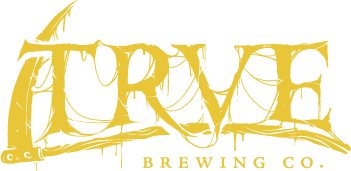Methode & Intention
A group of American brewers has, over the last year, come up with up with a new appellation for traditional, spontaneous beers made using a coolship: Methode Traditionelle. The argued need for this appellation is to avoid confusion and deception about spontaneous beers on the market, to set up best practices, and to side step the terms “Gueuze” and “Lambic,” as these are commonly accepted as referring to a specific region in Belgium.
So, let’s take a minute and talk about intent. Here is the stated intent for Methode Traditionelle: “The intent has always been to truthfully and accurately refer to where the inspiration and production methods come from (Lambic and G(u)euze), and to do so in a manner that is respectful of the traditional producers. While Méthode Gueuze was intended to accomplish both of these facets, the hope and expectation is that Méthode Traditionelle will be successful in its place.”
And, to continue/clarify further: “There is a world of creativity and opportunities when it comes to spontaneous fermentation. There really should be no limiting factors aside from no yeast or bacteria pitched. Méthode Traditionelle is not designed to limit creativity or choices, and it should not be viewed as superior to any other type of spontaneously fermented beer. It is primarily a functional term used to solve the issue of referring to Lambic and G(u)euze style beer, without using the words “Lambic” and “G(u)euze” by name.”
It is easy to agree with most of the intent, as presented, as it is important to refer to where inspiration and production methods come from. And, yes, it is a good idea to respect traditional producers of these beers. But, as an absurdist who chooses to live a life of meaningful rebellion, I do not think that Methode Traditionelle aligns with TRVE.
I mention absurdity and rebellion because it informs the beers we make at TRVE, and, as such, is representative of our intent. I want to push the boundaries of what is possible but also push our drinkers out of their comfort zones. It is something that a lot of people have latched onto and appreciate about our beers.
Though the concept (i.e., intent) is to establish best practices without limiting factors, the very creation of a mark demands a certain level of gatekeeping. This is then inherently limiting, as it allows one to hold those accountable who choose to take part while letting those who do not remain free to proceed as willed.
Why, then, would one choose to join? The unstated assumption is that this mark, and the caliber of breweries associated with it, will have such social/cultural power as to all but totally devalue those who choose to not participate and use the mark.
So, what then is a brewer to do? Is the hand forced in this case? Is this a fair confinement (i.e., is it worth the trade off of supporting the stated intent(s))? At TRVE, we are unwilling to fully support anything that is potentially limiting because, as American brewers, it is all but in our DNA that we must continually rebel against any limitations or laws placed upon what we can create.
That said, it is important to have these discussions and for us to communicate our inspirations and processes. Also, the brewers who have created Methode Traditionelle have done a mountain of work. Words shape our reality, so we must be careful how we use them, and we must be careful about how they are used to implicitly confine us. Does that mean we’ve ruled out the possibility of using it?
For now, I’ll let Camus do the heavy lifting:
“What is a rebel? A man who says no: but whose refusal does not imply a renunciation."
Zach Coleman, Head Brewer, TRVE Brewing Co.

